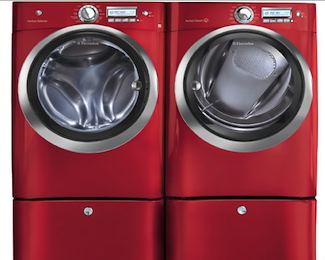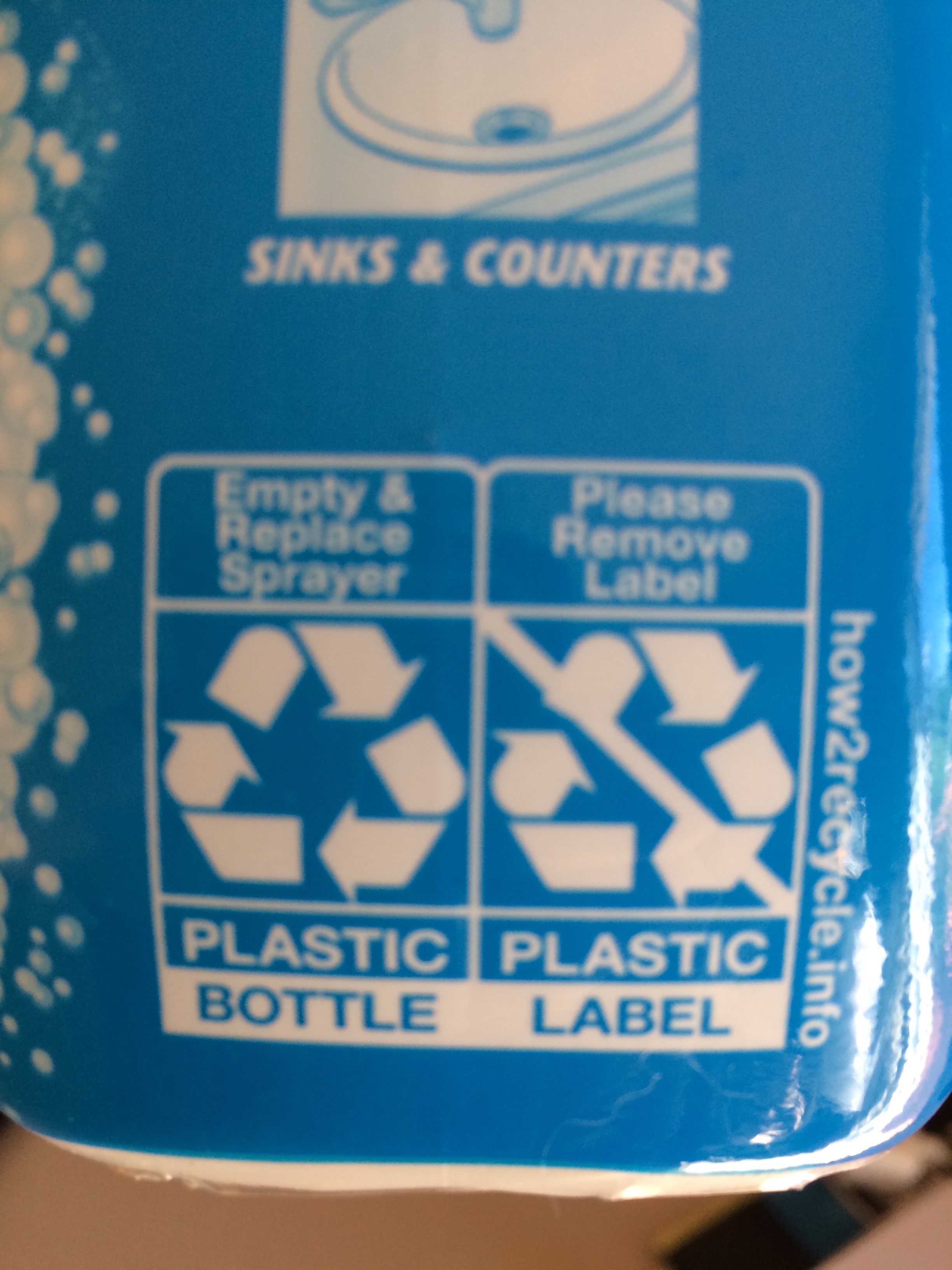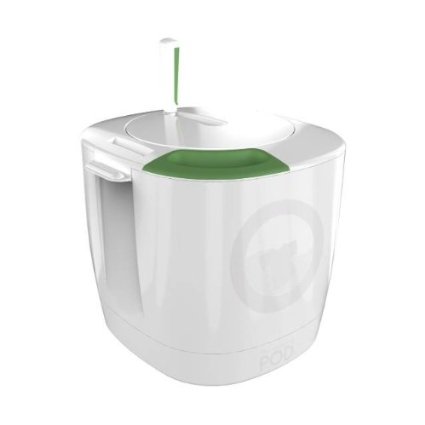Front Load Washer Reviews

Sometimes finding the most efficient appliances for our green homes is a challenge; sometimes it's a real no-brainer. When it comes to saving a great deal of water and energy, it's hard to beat the front-loading washing machine. The average U.S. family does almost 400 loads of laundry a year, and an efficient front-loading washer can cut energy costs by a third, and water usage by more than 50%!
Front-Load Washers: First Things First
As with any efficient appliance purchase, it's a good idea to start with the Energy Star label. This is an indication that the washer is certified to be among the most-efficient in its size category. Also, consulting the EnergyGuide label required for each new washer will tell you how it rates energy-wise compared to other similar models. Learn more about Energy Star and the EnergyGuide label here:
Front-Loading Washers vs. Top Loaders
Front-loading washers use much less water and energy (gas or electric) than top loaders. They do this by using the back-and-forth 'sloshing' action of the horizontal wash drum, using gravity rather than a top-loader's agitator to keep things moving. Since the front-loader's horizontal drum only needs a small amount of water in the bottom of it rather than filling the entire drum in a top loader, much less soap and water is used.
Less Water = Less Energy
However much water is used in a washing machine, it needs to be heated. Obviously, using much less water in a front-loader will require much less energy to heat it. Much less detergent is needed as well, which will also save money over time.
More Advantages of Efficient Front-Loading Washers
Most front-loading washers can handle much larger loads than top-loaders. This is due to the fact that the front-loader doesn't have a bulky agitator. This allows for 30% larger laundry loads, which further reduces energy and water use (AND time!). It's also great for washing large items like sleeping bags, comforters, and rugs.
Front-load washers have very fast spin cycles; the 1000 rpm spin cycle is much faster than the 600-700 rpm spin cycle on top loaders. This faster cycle extracts much more of the water from the clothes, so they come out of the washer much drier, reducing drying time. Again, more energy savings.
The violent agitating of a top loading washer can be hard on clothes, especially gentle items. The non-agitating spinning of the front loader is much gentler on clothes, extending their lifespans.
Front-load washers are also stackable, something you just can't do with top loaders. This makes them excellent choices for areas where space is limited.
How Much Energy Can You Save With a Front-Loading Washer?
The $64,000 question with any green product is how much energy will it save? As we've mentioned, front-loaders excel at saving energy. Replacing an older model with an Energy Star-certiified front loader can save over $130 a year on water and utility bills. Over time, you'll save enough money to pay for the new washer, and maybe even a new dryer as well.
Energy Efficient Top Loading Washers
Manufacturers are introducing more efficient top-loading washers, some of which qualify for Energy Star certification. Keep in mind that Energy Star for these top loading washers only compare them to other top loaders; in most cases the front-loading option will remain the most efficient, and do a better job cleaning your laundry than top loaders.
Go Green With a Front-Loading Washer
The energy and water-saving potential of front-loading washers is astounding. Take that average 400 loads of laundry per year….. Imagine using only 10 to 20 gallons of water instead of the 40 to 50 a top loader uses for each of those loads. Then imagine not having to waste energy heating all that extra water. It adds up to thousands of gallons of water per year you aren't using, paying for, and heating!
Super-Green Tip
Whether you have a front-load or top-load washer, you can save energy by washing (or at least rinsing) with cold water instead of warm or hot. 95% of the energy used by a washer is used to heat water.
comments powered by Disqus

























































































































































































